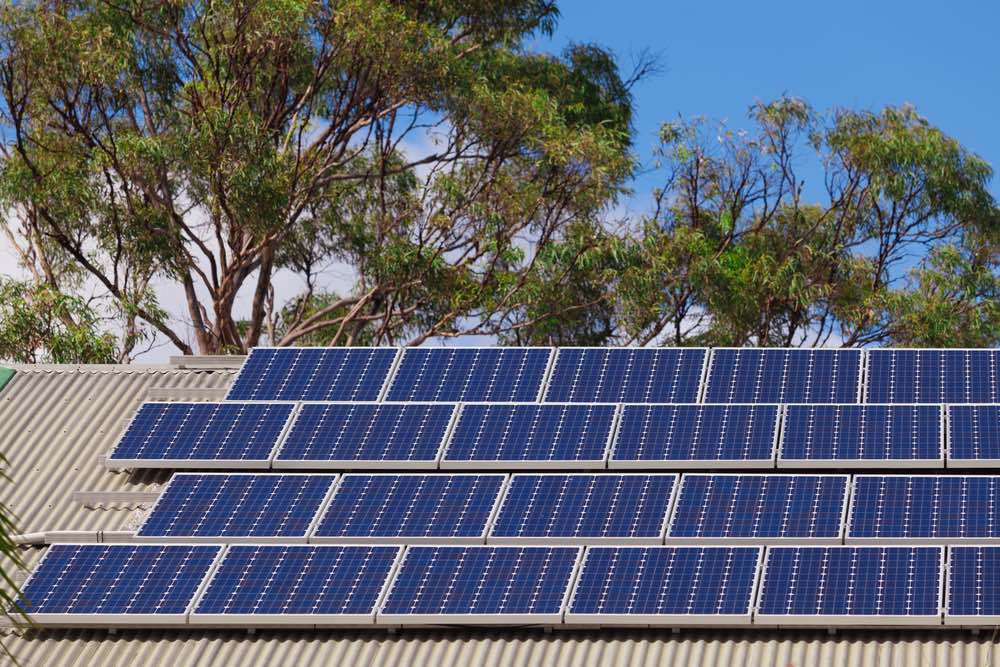In Adelaide, we’re lucky to enjoy a high number of beautiful, sunny days.
While there are some obvious advantages to this (our beach-loving, outdoorsy reputation has to come from somewhere), there are new reasons that our sunny weather is a favourite for Australian families.
The energy industry is undergoing a transformation. Constant rising electricity costs have been pushing people to look for ways to become independent from the traditional power grid, and that opportunity is about to arrive!
The use of solar panels has been steadily increasing for a number of years now. Adelaide, in particular, is one of the most progressive states in the country when it comes to renewable energy, with around 30% of homes already using solar systems.
Building on this enthusiasm, coupling solar panels with home battery storage could soon become the cheapest way to power your home.
The rapid evolution of lithium-ion batteries and the associated technology means that homes and businesses are likely to have more affordable access to high quality, efficient solar energy storage within a few years.
At the moment, the initial setup cost of a solar battery system can be a little out of the price range of an average Adelaide family.
But as more battery storage options become available, prices to purchase and install the systems are going to get increasingly competitive. It opens battery storage up to the general market for both homes and businesses looking to substantially cut their energy bills and use a more environmentally friendly energy method.

So, what does a solar home battery system actually do?
It’s a relatively simple concept that involves some high-tech equipment. Batteries allow you to store any excess energy that your solar energy system generates throughout the day to use at night.
As your solar panels convert the sun’s light into energy, the battery stores that energy until you’re ready to use it.
Most homes use the vast majority of their power during the night. So solar power generated during the day is sent back to the grid for only a small cost benefit. By storing the energy, you can steer clear of the grid for a bigger portion of your day.
You can also use your stored energy in the event of a black out. Some appliances are crucial to keep running, and battery backup makes sure you’re covered even if the power goes out.
In the not so distant future, battery storage could even be an opportunity to go completely off the grid. It will give you greater control over your power bill than ever before!
Want to know more about the batteries?
At the moment, solar home batteries have an average service life of around ten years. They are usually quite small and easily fitted near your meter box and out of your way. They are a long-term and cost-effective option that generally require very little maintenance once installed.
There are different batteries that will be suited for different household needs. The average amount of energy your home uses in a day is a good indicator of the size battery you should be looking for.
An investment in the future
It’s very exciting to see all the new opportunities coming up in the renewable energy sectors. The potential impact of solar batteries coming into popular use has been likened to the way mobile phones revolutionised the telecommunications industry.
It’s also a sustainable option which helps the environment while it helps people’s electricity bills, so it’s a win-win!
But remember, you don’t have to wait until battery storage is more affordable to start reaping the benefits of a solar energy system. There are lots of options for solar solutions already on the market, and in some areas, government subsidies to help with those initial setup costs.
Just make sure that you specifically look for a battery-ready or upgradeable system. Thinking ahead could save you lots of time and money in the long run.
If you’re interested in looking at how a solar energy system could help you significantly cut your energy bills, the expert Adelaide electricians at TPR Electrical would be happy to take a look at your current energy usage and give you personalised advice.

 1300 877 353
1300 877 353
 Email
Email
